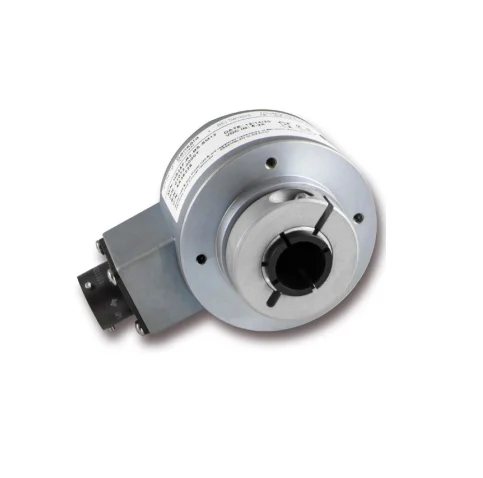- This topic is empty.
-
AuthorPosts
-
2025-09-16 at 11:53 am #10419
In the fast-evolving world of industrial automation, the industrial encoder BEI sensor has become a crucial component for precision control. Encoders serve as feedback devices that measure motion, speed, and position, ensuring that machines operate with high accuracy. The BEI sensor, known for its reliability and advanced engineering, is widely adopted across industries ranging from manufacturing and robotics to aerospace and renewable energy. In this blog post, ENX Enxiao will share the role of industrial encoder bei sensor in modern automation, its working principle, advantages, applications, etc.
What is Industrial Encoder BEI Sensor for sale?
An industrial encoder BEI sensor is a motion feedback device designed to convert mechanical movement into electrical signals. These signals are then interpreted by control systems such as programmable logic controllers (PLCs) or drives, enabling precise monitoring and control of mechanical processes.
BEI encoders are available in different types, including:
-
Incremental encoders: Provide relative position data and are ideal for speed monitoring.
-
Absolute encoders: Deliver unique position values, ensuring accurate readings even after a power loss.
The versatility of these sensors makes them a preferred choice for engineers who prioritize accuracy and durability in demanding environments.
Advantages of BEI Industrial Encoder Technology
The BEI industrial encoder sensor has earned a strong reputation due to its advanced features. Some notable advantages include:
-
High precision: Delivers reliable feedback with minimal error.
-
Durability: Designed for harsh industrial conditions such as vibration, dust, and extreme temperatures.
-
Wide compatibility: Works with multiple industrial control systems.
-
Customizability: BEI encoders can be engineered for specialized applications, including aerospace and defense.
These benefits highlight why BEI sensors remain a trusted choice in critical automation processes.

Applications of Industrial Encoder BEI Sensor in Automation
The industrial encoder BEI sensor applications extend across diverse sectors. Here are some of the most impactful uses:
-
Manufacturing machinery – Monitors motor speed and ensures precise alignment of production lines.
-
Robotics – Provides motion feedback for robotic arms, improving accuracy in repetitive tasks.
-
Elevators and conveyors – Enables smooth motion control and safety through accurate positioning.
-
Wind turbines – Measures rotor position and speed, ensuring efficient energy conversion.
-
Aerospace – Delivers precision in navigation systems and flight control applications.
This broad application spectrum demonstrates the versatility of BEI encoders in industrial and technological fields.
Comparing Industrial Encoder BEI Sensor with Conventional Encoder
When analyzing performance, the BEI industrial encoder sensor offers several advantages over conventional encoders:
-
Enhanced reliability in extreme conditions compared to general-purpose encoders.
-
Longer service life due to rugged design and premium materials.
-
Greater signal accuracy, reducing the margin of error in sensitive systems.
By choosing a BEI encoder, businesses can minimize downtime, optimize performance, and achieve long-term cost savings.
Technological Innovations in BEI Encoder Sensor
Recent advancements in BEI industrial encoder sensors have further elevated their performance. Key innovations include:
-
Magnetic sensing technology for improved resistance to dust and vibration.
-
Miniaturized designs that fit into compact industrial systems.
-
High-resolution output supporting more complex automation tasks.
-
Integration with IoT for real-time monitoring and predictive maintenance.
These innovations enable industries to keep pace with the digital transformation of manufacturing and smart factory operations.
Choosing the Right Industrial Encoder BEI Sensor
When selecting an industrial encoder BEI sensor, engineers should consider:
-
Application type – Speed monitoring, position tracking, or motion control.
-
Environmental factors – Temperature, vibration, and exposure to contaminants.
-
Resolution requirements – Determined by the level of accuracy needed.
-
Communication protocols – Compatibility with existing automation systems.
By carefully assessing these factors, businesses can choose the most suitable BEI encoder for their operational needs.
Maintenance and Longevity of BEI Encoder Sensor
To maximize the service life of an industrial encoder BEI sensor, regular maintenance is essential. Recommended practices include:
-
Periodic cleaning to prevent dust accumulation.
-
Checking wiring connections to ensure signal accuracy.
-
Monitoring output signals for early detection of wear or damage.
-
Following manufacturer guidelines for calibration and servicing.
With proper care, BEI encoders can deliver long-term, reliable performance, even in challenging conditions.
Conclusion
The industrial encoder BEI sensor has established itself as a cornerstone of precision automation. Its reliability, adaptability, and technological innovations make it indispensable in industries where accuracy is paramount.
As smart factories, robotics, and renewable energy systems continue to expand, BEI encoders will play an even greater role in shaping the future of industrial automation. Businesses that invest in these advanced sensors are not only ensuring operational excellence but also aligning themselves with the next wave of digital transformation.
http://www.enxsensors.com
ENX Enxiao -
-
AuthorPosts
- You must be logged in to reply to this topic.
